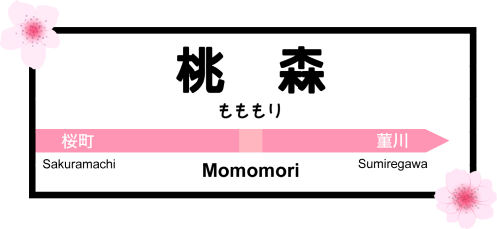Intro
Ikegaya Yuuji is a professor of pharmaceutical sciences who is an active neuroscience researcher. He is often quoted in the Hobonichi Techo quote section, and the company that publishes the Hobonichi Techo did a series of interviews with him called "What Was There Before the Big Bang?" back in 2019. Since I often think about that, I wanted to translate this series.Translation
Tell Us, Ikegaya Yuuji-san: What Was There Before the Big Bang?
It's been a few months since Ikegaya Yuuji-san's picture book, Why Do We Live? has come out. This time, we're asking him why the world exists. To get those of you who haven't read it excited about it, we've hidden some words that are associated with the picture book in this series. Even if you read the interview with them hidden, we think the interview itself is enjoyable on its own. Nagata and Sugano from Hobonichi Picture Book Publishing conducted the interview at Ikegaya-san's lab at Tokyo University. Sugano edited the interview for publication.
Part 2: Things You Learn, and Things You Let Go
-- A fish's instinct...what do you mean? Can you give an example?
Ikegaya
It's in the river, and there's a rock ahead of it. A bigger fish is pursuing it from behind. It has to escape either to the left or right.
"Let's see...I can get to the right side if I go about X meters per second, and the speed of the current is Y meters per second on the left, and on the right, it's..." It thinks about its own physical strength and goes to the right.
Except, the fish doesn't think about any of that at all, it just runs away, zip! That instinct isn't random. Only the ones whose instincts were correct proceed without being eaten and go on living.
In the end, the only living beings that are left are those whose instincts were correct. We couldn't have gotten here by coincidence alone.
Everyone has come this far with that kind of uncertainty that says "I kind of get it, but I kind of don't," and yet still coming up with the correct answer. Our instincts are correct, in other words, we still end up with the right answer even if that explicit understanding isn't there.
-- We've gotten to be "humans" by getting to the correct answer through uncertain judgments.
Ikegaya
But in the process of evolution, when we became monkeys, our cerebal cortexes got much larger.
So now, when you do something by intuition, like when you swing a tennis racket and it's like "I can do it but I don't know how I did it," this thing called the striatum in the brain is studying what happened. The cerebral cortex surrounds the striatum.
-- It got bigger in the monkey...
Ikegaya The cerebral cortex is incredibly large in humans. Of course, that's not a bad thing, but we became very different from other animals. When it comes to raw numbers, our cerebral cortex comes out on top. The cerebral cortex would win in an election. It's around then that humans began to become a unique species.
-- And then what happened?
Ikegaya We started to become stupid.
-- In terms of instincts.
Ikegaya
Yes. Like, "Hey you, you don't understand anything!" It's not really like that, but not knowing is human nature.
But because our cerebral cortex is so big, we judge: "That guy doesn't know anything. He must not be able to do anything." When the striatum studies actions, that's slow, that's hard to understand.
-- I'm really glad you wrote a commentary page to address that feeling.
Ikegaya A couple of editors asked me to write that commentary page. I'm glad I did.
-- I think there will be some people who are unsettled by the book in attendance at your special lecture on September 3rd.
Ikegaya They are welcome to leave. We don't need any more of them.
-- No!
Ikegaya
That's what I'd like to say (laugh). I'll probably go into some more detail about that in my September 3rd talk. And I'll clarify some things that weren't spelled out due to the nature of picture books being more lexically brief. Although...there is some time until my lecture, so what I end up wanting to talk about may change.
Anyway, what I'd like to express is that the discomfort many may feel is not necessarily a bad thing.
-- They should think of it in a positive...
Ikegaya
Yes, like a seed. For example, this is something I think about when I look at my students at Tokyo University. They are at the beginning of a journey. From my perspective, they have a lot of passion and potential bottled up inside them.
This shows through when they listen to the talk, too. They feel this overwhelming power, like they can't complain, they say to themselves, "I just have to live, I guess. That's how it is."
Because a tree just sprouts, doesn't it? Even if you yell "don't grow!" at it, it does anyway. It pops up out of the ground unabated. That's how I think of this book. We just exist, above and beyond our rights or obligations. We are natural phenomena.
-- Some people said "I don't get it," but the second most common response was, "I understand a little, but not all of it."
Ikegaya I think that's a very honest response. Because this book is saying, "The universe has been growing older since the Big Bang. We're helpers in that process."
-- Yes, yes.
Ikegaya Even I have trouble absorbing that.
-- It's...difficult to absorb (laugh).
Ikegaya
You may understand it intellectually, but you don't really feel it. That experience manifests as "I don't completely understand it."
It's interesting to understand something without feeling it. There are two ways of learning something: you either understand it and move forward, or you move forward intuitively without fully understanding. We learn things like skiing or tennis or riding a bike in the second way.
-- I see.
Ikegaya
There are things that you don't explicitly know, consciously, but you can sort of feel it. You don't have some sort of logical realization, but you feel like you kind of understand it, yet don't understand it. That kind of understanding exists.
That kind of learning has somewhat fallen out of favor. In school, they always ask you "okay, do you get it now?" right away, right? I think that method of continuous confirmation has led to other forms of learning being lost.
-- Like, right after you learn something, you take a quiz to confirm what you've learned.
Ikegaya
Yes, yes. And then you can see your points going up or down, and you get that immediate feedback. Students go through their nine years of compulsory education not so much focusing on learning effectively as completing pieces of the curriculum.
When that's what you're used to, not knowing is equated with "bad." People say to you, "what, you don't get it?" and your points go down, and you think that's bad.
But, for example, think about fish. They don't "understand," but they choose the correct direction to run away. Society calls that "animal instinct." A more specialized term would be "intuition." How did they learn what they know? Fish don't take a bunch of quizzes on what they've learned to confirm it.
(We'll continue with more on fish intuition tomorrow.)






